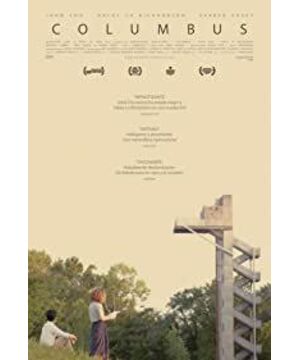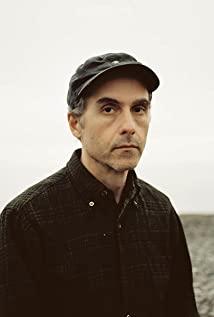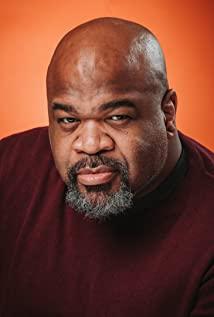Feature film debut from Korean-born American video essayist Kogonada (a nom de guerre in homage to Yosujirô Ozu's screenwriter Kogo Noda), COLUMBUS, its title unequivocally pins down the film's locality, entirely set in Columbus, Indiana, a city mostly famous for its modern architecture, and under the surveying eyes of Kogonada's symmetrically composed pillow shots (in Ozu's vein, for shizzle), its architectonic repose predominantly suffuses the unhurried narrative, so much so that the architectures themselves (notably Finnish architect Eliel Saarinen's First Christian Church and his son Eero Saarinen's Irwin Union Bank, the Robert N. Stewart Bridge, the Miller House, just to name a few) speak volume of a soothing, therapeutic effect.
The story is about two limbo-stuck strangers, Jin (Cho), a middle-aged translator working in South Korean, is obliged to stay in Columbus for an indeterminate time when his father is suddenly falls into a coma, who is an acclaimed architect visiting the city for a lecture; there is also local high school graduate Casey (Richardson), who puts further eduction on hold to attend to her recovering meth-addicted mother Maria (Forbes). A platonic bond slowly builds between the two through their casual confabs, while Casey is a categorical architecture nerd, a cynical Jin is apparently averse to it because of the negligence he receives from his father.
Kogonada, again, indebted to Ozu, steadfastly allows the narrative to unspool with emotions, undertow and conflicts patiently simmering, all framed within DP Elisha Christian's static, artistically poised composition, occasionally, lacunae are tactfully exerted into the story-line, for instance, it is obliquely indicated that Maria might be experiencing a relapse which she intentionally keeps Casey out of, or in an earlier occurrence, Jin and Casey's confab is muted in mid flow when non-diegetic music swells, as it to intimate that words are redundant, it is their opposite personalities attracts each other.
A woebegone John Cho contrives a layer of coolth and subtlety spiked with grievance, frustration and detachment, but at the end of the day, it is Haley Lu Richardson's honest, congenital, earnest disposition that enchants viewers into Casey's plight, not only she makes her an unlikely soulmate to Jin, Richardson also conjures up fetching camaraderie with Rory Culkin's Gabriel, her coworker in the library, and a tacit bond between an understated Forbes. Lastly, Parker Posey (viz. Queen of American Indie Cinema) radiates earnestness in her supporting turn as Eleanor, the longtime assistant of Jin's father, and for Jin, she is someone that's got away. A highly cerebral first feature, heightened by an astute sense of spatial propriety and emotional candor, COLUMBUS is an enthralling piece of work that puts Kogonada's name on a much larger map.
referential entry: Ozu's TOKYO STORY (1953, 9.1/10).
View more about Columbus reviews











